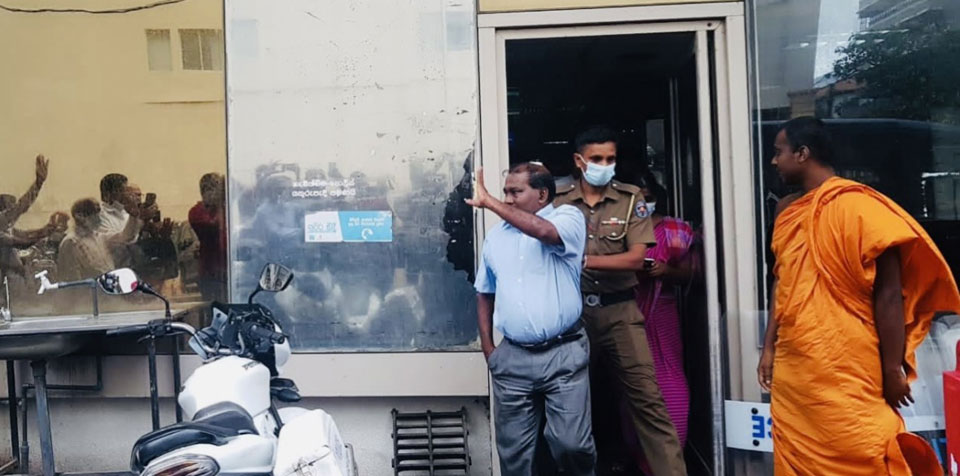
Sri Lankan trade union leader Joseph Stalin has been released on bail a week after he was arrested for leading an anti-government protest.
The general secretary of the Sri Lanka Teachers Union was one of the organizers of a large demonstration on May 28 calling for the government to resign over the country’s deep economic crisis.
Stalin is the most senior trade unionist to be arrested since former prime minister Ranil Wickremesinghe assumed the presidency last month. The new president’s predecessor, Gotabaya Rajapaksa, had been forced to flee the country after mass demonstrations swept the streets of the capital Colombo.
Protesters stormed the presidential palace and set Wickremesinghe’s private residence ablaze, leading to the resignations of the Rajapaksa family, which held key positions in the Sri Lankan government.
But anger has continued toward Wickremesinghe, who’s accused of protecting the Rajapaksas. There are calls for him to resign as well.
The arrest of Stalin was described as “disturbing” by United Nations special rapporteur Mary Lawler. “The work of human rights defenders like Joseph has been more important than ever in recent weeks and must be supported, not punished,” she said.
International Crisis Group spokesman Alan Keenan said the ongoing crackdown on dissent by Wickremesinghe’s government “is worse than any under Gotabaya Rajapaksa’s administration.”
Senior politicians have urged Wickremesinghe to stop arresting activists and instead make efforts to unite the country and solve the economic crisis.
Mass protests were held demanding Stalin’s release, and the Colombo Fort magistrates’ court freed him on bail late on Monday.
Morning Star










